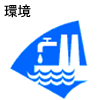1. Why is calibration necessary?
Calibration is necessary to ensure the reliability of measurements made by manufacturers, testing and research institutes, other industries, and the general public. For example, in the case of temperature measurement, if the reliability of measurements is not ensured for food sterilization temperatures, pharmaceutical synthesis and storage temperatures, molten steel temperatures in steelworks, chemical reaction temperatures in plants, cooling water wall pipe temperatures in power plants, heat treatment temperatures for automobiles and aircraft parts, etc., a major accident may occur, which not only destroys the trust of manufacturers, but also has a large social impact. Thus, calibration of measuring instruments is essential. In addition, calibration (or inspection) of measuring instruments is a mandatory requirement in laws, standards, and quality management systems related to each industry.
 | IATF 16949
Specific requirements for the application of ISO 9001:2000 to automotive production and related service and parts organizations In addition to the requirements related to the calibration of measuring instruments, it also requires that external calibration laboratories conform to ISO/IEC 17025. |
 | AMS 2750
This is an American standard that specifies the operation and management of heat treatment furnaces used in the aerospace industry. It also specifies in detail specifications and calibration of thermocouples and measuring instruments. |
 | High Pressure Gas Safety Act
Thermometers used in manufacturing facilities that are regulated by the High Pressure Gas Safety Act are required to be inspected every two years. |
 | Pharmaceutical Affairs Law GMP
It specifies the calibration of measuring instruments in validation of Good Manufacturing Practice (GMP) for pharmaceuticals and quasi-drugs. |
 | HACCP
In HACCP, temperature is a Critical Control Point (CCP) and calibration of monitoring equipment is essential for its validity. |
 | ISO14000
It is stipulated that calibrated monitoring and measuring equipment must be used. |
 | ISO9000
The control of monitoring and measuring equipment is required to be calibrated or verified against measurement standards that are traceable to international or national measurement standards. |
2. The meaning of calibration and traceability
The JIS Z 8103:2000 measurement terminology defines it as follows:
[Proofreading]
instrument A set of operations to determine the relationship between the values indicated by a measuring system or a value represented by a real instrument or reference material and the value realized by a standard. NoteCalibration does not include adjusting the instrument to correct errors.
[Traceability]
The property of a measurement result or standard value that can be related to a determined reference by an unbroken chain of comparisons, all of which are specified with uncertainties. The reference is usually a national or international standard.
Note 1) Uncertainty refers to the degree of variation in a measurement, but the variation includes not only changes in the measurement data in the actual measurement, but also ambiguities in knowledge, such as ambiguities in the physical constant used.
3. About JCSS
The official name of JCSS (Japan Calibration Service System) is the "Measurement Law Calibration Service registration System", which was introduced by the Measurement Law revised in November 1993. As shown in the figure below, the system consists of the supply of standards by the National Institute of Advanced Industrial Science and Technology (development) and the examination of "registration service providers" by the Accreditation Center of the National Institute of Technology and Evaluation (registration). National measurement standards (primary standards: specified standard instruments, etc. or specified reference materials) for calibration sources subject to JCSS are designate provided by the Minister of Economy, Trade and Industry based on the needs of industry and the status of the measurement standards supply system in accordance with the Measurement Law. National Institute of Advanced Industrial Science and Technology (AIST) development, NEC instrument testing laboratories or designate calibration laboratories designated by the Minister of Economy, Trade and Industry designate supply measurement standards (calibration, etc.) to registration businesses using designate specified standard instruments or specified reference materials. The assessment registration of "registration service providers" is made to the Accreditation Center of the National Institute of Technology and Evaluation (NITE) in the name of the President of NITE registration that the calibration service provider has the technical capability to perform calibration in accordance with the requirements of ISO/IEC17025.

4. Advantages of JCSS
In JCSS calibration, a third-party registration body guarantees the reliability of the technical capabilities and quality system of the business operator, and the calibration certificate with the JCSS mark issued by registration business operator proves that it is traceable to Japan's national measurement standards. Therefore, other documents such as a traceability certificate are not required. In addition, certificates issued by MRA-compliant certified businesses are accepted overseas.
IA Japan, a JCSS accreditation body, has signed MRA (Mutual Recognition Arrangement) with the international testing laboratory organizations ILAC and APLAC, so calibration certificates issued by MRA-compliant accredited laboratories can be accepted in major countries around the world.


